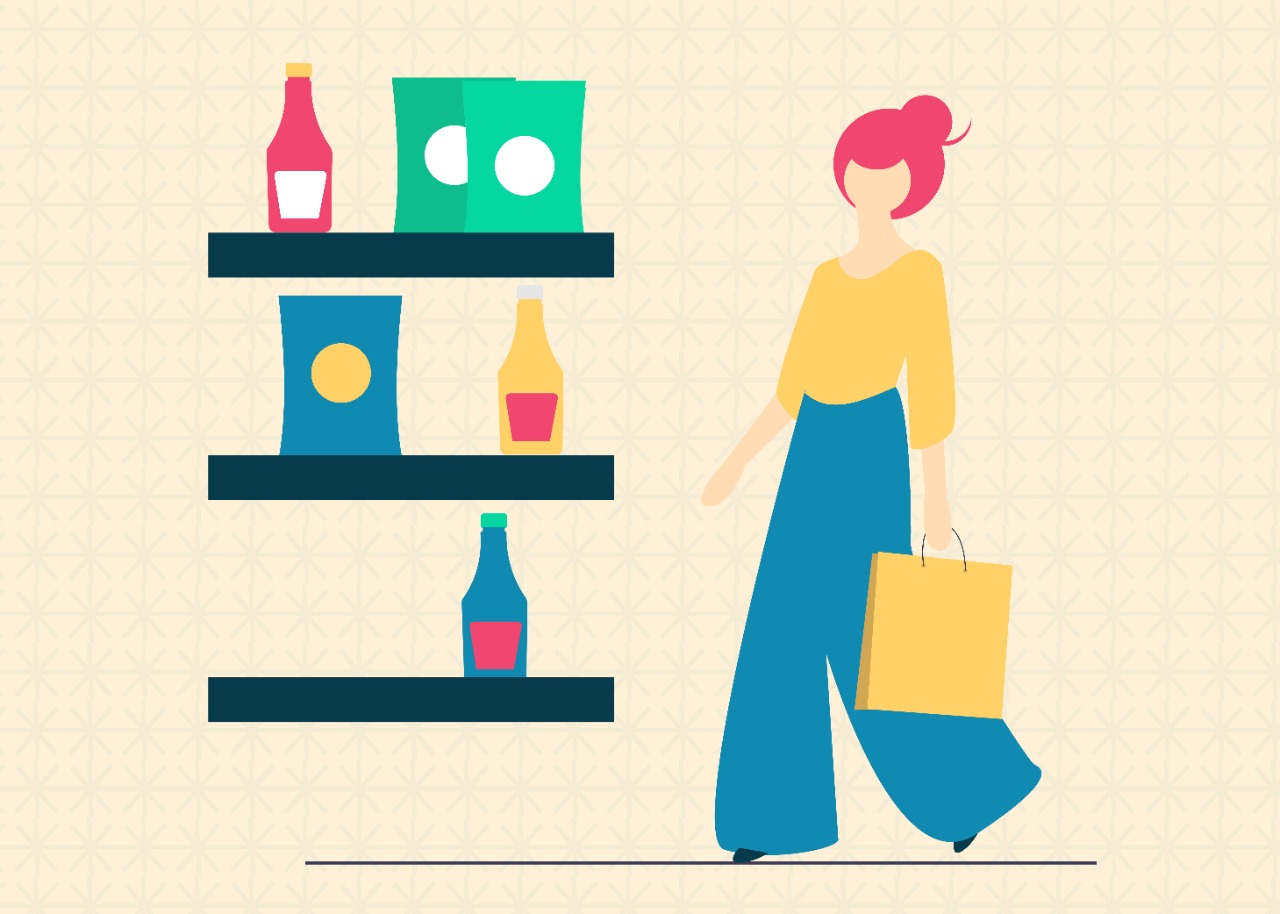
Practising Mindfulness While Quarantine Shopping

The pandemic has currently thrown any semblance of what we once as normal out of the window- and that includes buying capacity.
Due to the need to save, a large percentage of people have dialled back buying things they don’t need. However, an even bigger percentage of people are doing the exact opposite- dialling their purchasing up. The surface level reasoning stems from boredom. It fills the void created by the lack of novelty and variety coupled with the lack of movement as shopping serves the purpose of distraction, hedonic fulfilment, a conceptput forth by Arnold and Reynolds (2003) and instant gratification. This fills us with the temptation to yearn after that feeling and shop more, thus making it that vicious cycle that we so often hear about and see in popular movies.
Biologically, the entire process of shopping causes dopamine (the ‘happy chemical’) to be secreted which gives what is popularly known as the ‘shoppers high’ i.e. a rush of adrenaline that we rush to recreate by shopping more.
In a study for Harvard Business Review, professor of neuroscience and marketing, Uma Karmarkar found that even browsing (i.e. window shopping) activates the nucleus accumbens (i.e. the pleasure centre).
On a deeperemotional level, there is an absolute loss of control from the current external environment and shopping is a way of gaining one’s agency over one’s lives in a largely uncontrollable situation. it also represents a hope for the future in a way where people buy items keeping the future in mind.
In addition to these emotional links to shopping, since all communication has gone online there is a digital overload. There is a constant barrage of ads advertising something or the other that subliminally impact us and our purchasing habits.
However, now more than ever it is important to be mindful of our purchases.
So how can one truly be ‘mindful’ while shopping? What even is mindfulness? These are two questions that may arise.
Contrary to popular media, mindfulness and ‘being zen’ are not the same. Mindfulness represents the quality of being attuned to the present context, feelings and thoughts. It means being fully engaged with the activity in that moment. It encourages being aware of what we are feeling thereby giving ourselves time and a choice on how to respond.
An important differentiation to make is between a need based buy and a desire based buy. The former can be classified as being essential and buying is fuelled by the object / item being over or unfixable– for example, if your running shoes are used to its maximum capacity or your tv is beyond fixing. A desire based buy, on the other hand, is fuelled by want rather than need- for example, buying the latest release of a new pair of earphones when you already own a good working pair.
While it is not at all wrong to indulge once in a while, making desire based buys during a financially unstable period of time like now may not be the best idea. While it can be very tempting to do so and difficult to turn away from browsing, a question to ask yourself while shopping that will put the brakes on the cycle of instant gratification is:do I really need this right now or is this a desire buy? Do I have the available money for this right now or can I use the available money for other essential items or to save up for the uncertain future?
Making this important distinction will give you time to think and reassess. More often than not, you will find yourself more aware of where this is coming from and more able to reassess the necessity. This pause gives your decision making ability a chance to view all the factors involved and then make an informed decision rather than a spur of the moment decision.
And when you do feel like treating yourself to something you have been saving up for/ have in mind, focus on that purchase to begin with. After which, limit yourself to maybe 1 or 2 unplanned purchases within your budget- we are human, after all!
For everyone who is fortunate enough to not worry about the next meal, this pandemic has revealed to us that we truly do not need much tolive and be happy. So, remember that the next time your finger hovers over that purchase button.
Image source-Mpowerminds

Exploring Sexual Identity: Navigating Personal Challenges and Building Self-Acceptance
Social Isolation of remote Working: How to stay connected with your team

